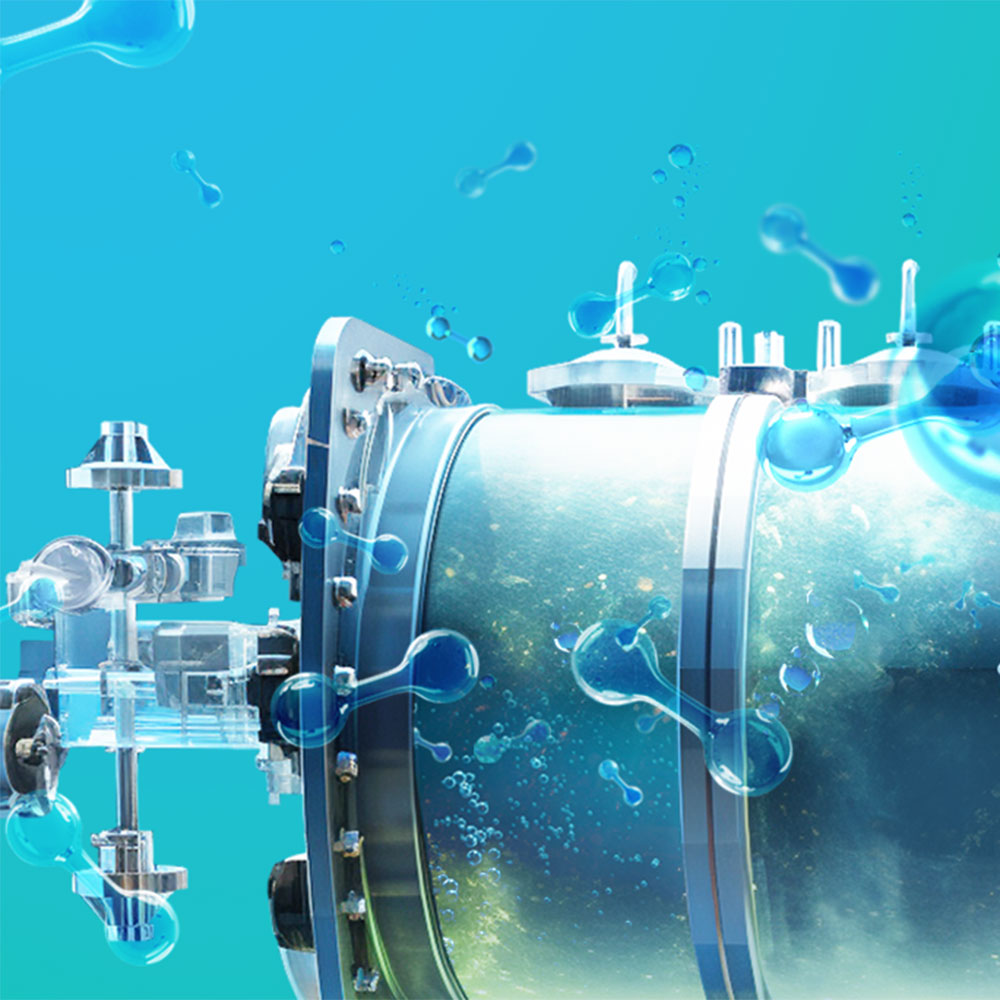About
- Home
- >
- About
Project summary
The reduction of emissions of carbon dioxide (CO2), represents a significant challenge within the EU Green Deal and for EU’s efforts against the ongoing climate crisis. This challenge is of outmost importance in order to achieve the goal of a climate-neutral continent by 2050. As early as 2030, the EU plans to reduce greenhouse gases emissions by at least 55%, necessitating the use of higher shares of renewable energy and greater energy efficiency. To meet these goals, the production of green hydrogen through electrolysis (powered by renewable sources) offers a viable solution.
Therefore, the PEACE project aims to develop a technology of high-pressure alkaline electrolysis (AEL) to substantially reduce hydrogen production costs, enhancing the competitiveness of the hydrogen economy.

Within the PEACE project, a demonstrator of an AEL system exceeding 50kW, capable of operating at pressures more than 50bar, will be designed and developed. This will be achieved through a novel concept involving two-stage pressurization. The integration of advanced components, innovative design, and optimized operation strategies will be explored through modelling and experimental testing, ultimately aiming to demonstrate a system with impressive efficiency characteristics.
PEACE places a strong emphasis on sustainability and circularity aspects – a Life Cycle Assessment (LCA) of the PEACE technology will be conducted to quantify its environmental impacts.
Furthermore, PEACE will elaborate on an enhanced integration of hydrogen production with its subsequent use within the chemical industry to achieve cost reduction in general and energy savings in particular.
The overarching goal is to achieve a technological breakthrough that positions Europe as a leader in highly pressurized AEL technology within the next three years.

PEACE is a research and innovation project funded under the EU Horizon Europe programme by the Clean Hydrogen Partnership. The Clean Hydrogen Partnership (as per its legal name Clean Hydrogen Joint Undertaking) is a public-private partnership consisting of the European Commission, Hydrogen Europe (the leading European association of hydrogen industries) and Hydrogen Europe Research (the European association of research and technology organisations within the hydrogen and fuel cell sector).
The aim of the Clean Hydrogen Partnership is to support research and innovation activities in hydrogen technologies in Europe under the guidance of the EU’s Hydrogen Strategy.
The PEACE project is being carried out by seven entities, under the coordination of the Deutsches Zentrum für Luft- und Raumfahrt (DLR). The consortium comprises two SMEs, four research and development centres with established expertise in alkaline stack and system, and Life Cycle Assessment, as well as one of the largest hydrogen production and utilization companies globally.

The project is supported by
the Clean Hydrogen Partnership and its members.

Co-funded by the European Union. Views and opinions expressed are however those of the author(s) only and do not necessarily reflect those of the European Union or Clean Hydrogen Partnership. Neither the European Union nor the granting authority can be held responsible for them.






